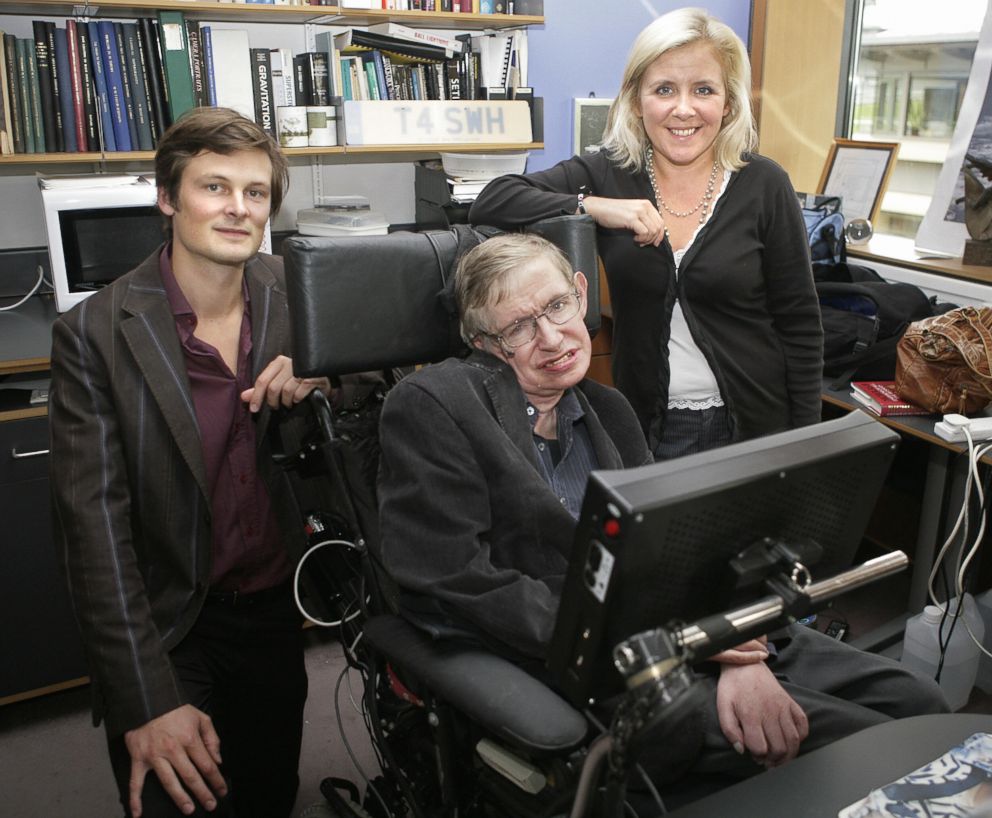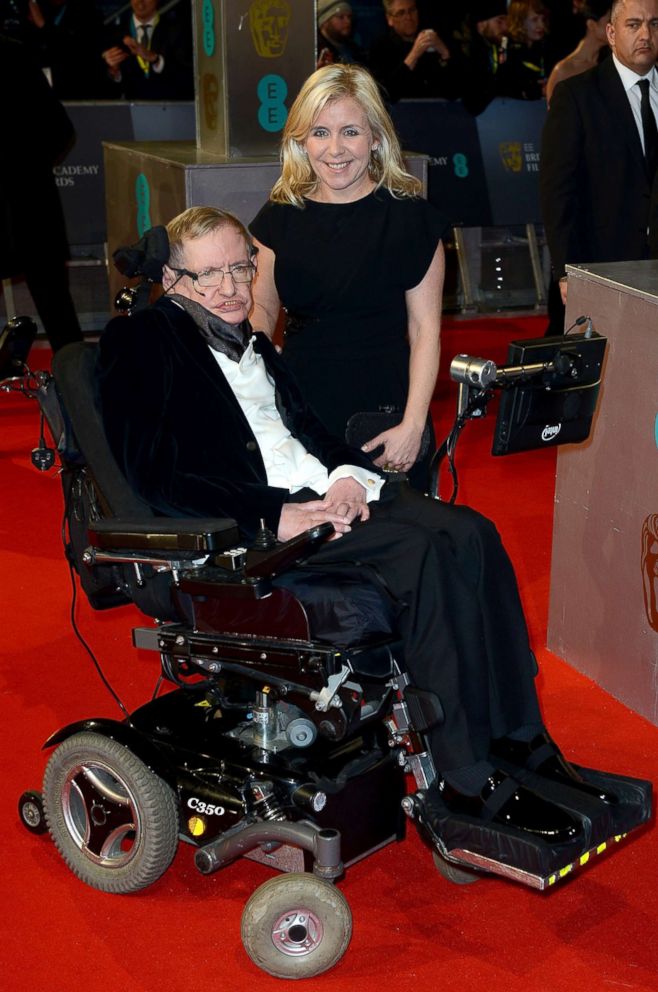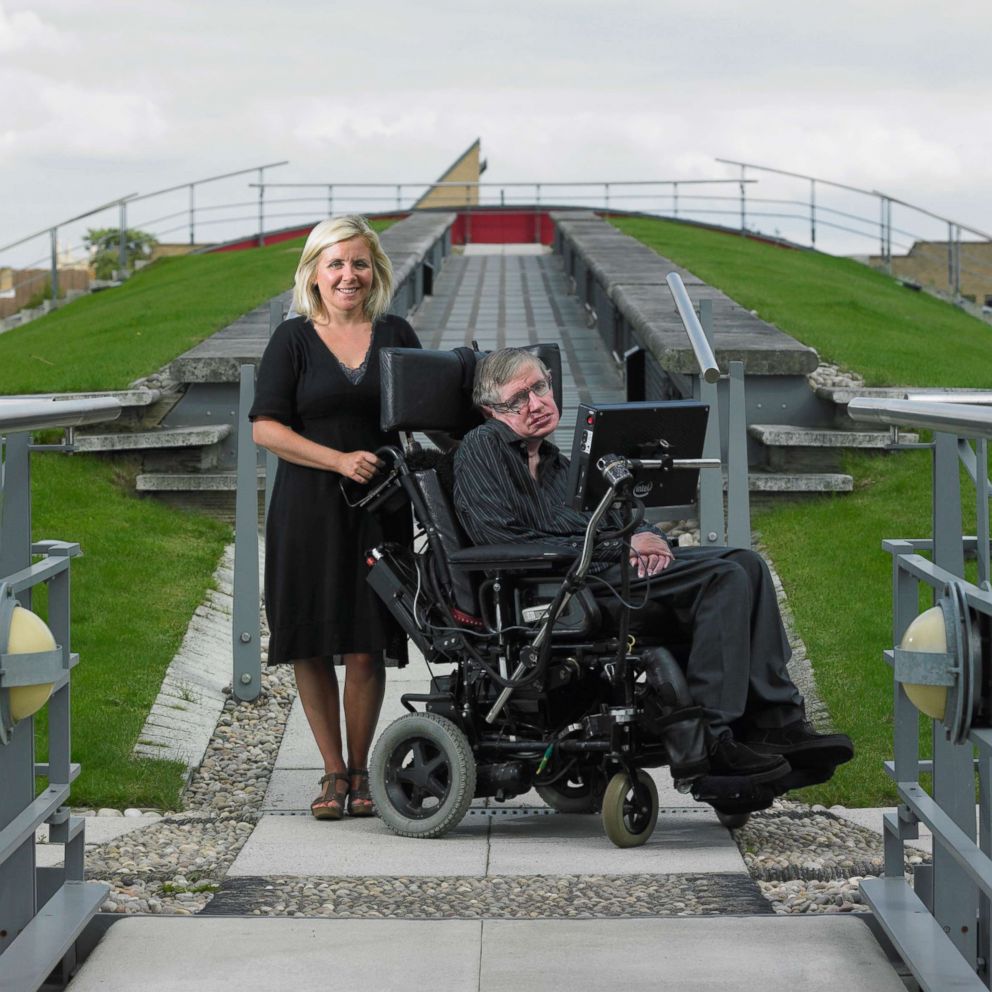The 'most important pieces of advice' Stephen Hawking gave to his children
Hawking "died peacefully" at his home in Cambridge, England. He was 76.
Several years before his death, Stephen Hawking revealed the special advice he gave his children as they navigated the many complexities of human life.
The famed theoretical physicist and bestselling author was asked in a 2010 interview with ABC News' Diane Sawyer on "World News Tonight" about the best fatherly advice he had given to his daughter, Lucy, and his two sons, Robert and Tim.
"Here are the most important pieces of advice that I've passed on to my children," Hawking said. "One, remember to look up at the stars and not down at your feet. Two, never give up work. Work gives you meaning and purpose and life is empty without it. Three, if you are lucky enough to find love, remember it is rare and don't throw it away."

Hawking "died peacefully" at his home in Cambridge, England, early Wednesday morning, a family spokesman told ABC News. He was 76.
"We are deeply saddened that our beloved father passed away today. He was a great scientist and an extraordinary man whose work and legacy will live on for many years," Hawking's family said in a statement. "His courage and persistence with his brilliance and humor inspired people across the world. He once said, 'It would not be much of a universe if it wasn't home to the people you love.' We will miss him forever."

Born in Oxford, England, on Jan. 8 1942, Hawking was only 21 years old when he was diagnosed with Amyotrophic Lateral Sclerosis, a form of Motor Neurone Disease more commonly called ALS or Lou Gehrig's disease, according to his official website. He developed severe physical disabilities but defied all odds by living far past the average lifespan for people with this disease.
Hawking, whose books included "A Brief History of Time" and "The Universe in a Nutshell," captured the public imagination with his remarkable scientific achievements in probing the deepest mysteries of the cosmos, despite being in a wheelchair and dependent on a computerized voice system to communicate.





